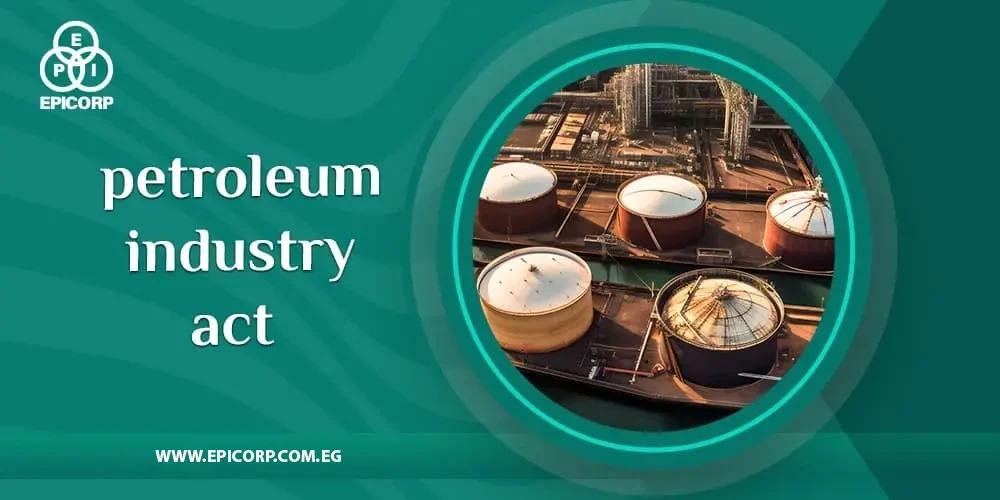The benefits of petroleum industry act (PIA) stands as a transformative legislative framework in the realm of oil and gas governance. Enacted to modernize and streamline operations within the petroleum sector, the PIA aims to enhance efficiency, attract investments, and promote sustainable development.
This introduction sets the stage to explore the multifaceted benefits of petroleum industry act brings to the industry, including improved regulatory clarity, increased competitiveness.
Table of Contents
ToggleWhy is petroleum important to the industry?
benefits of petroleum industry act is crucial to the industry for several reasons:
- Energy Source: Petroleum is a primary source of energy, providing fuel for various industries, transportation, and power generation.
- Raw Materials: The petrochemical industry relies on petroleum as a feedstock to produce a wide range of products, including plastics, chemicals, and synthetic materials.
- Transportation: Gasoline and diesel derived from petroleum are essential fuels for automobiles, airplanes, ships, and other modes of transportation.
- Infrastructure Development: Petroleum-based products are key components in the construction industry, contributing to the development of roads, buildings, and infrastructure.
- Manufacturing Processes: Many manufacturing processes depend on petroleum-derived products, from lubricants to solvents, enhancing efficiency and performance.
- Electricity Generation: Natural gas, a component of petroleum, is used in power plants for electricity generation, contributing to the stability of energy supply.
- Economic Impact: The benefits of petroleum industry act is a major economic driver, providing employment, generating revenue, and contributing significantly to the GDP of oil-producing nations.
Read also: Petroleum Industry Definition.
What are the benefits of petroleum industry act?
The benefits of petroleum industry act (PIA) include:
1. Regulatory Clarity:
The PIA provides a clear and comprehensive regulatory framework for the Nigerian petroleum industry, fostering transparency and predictability.
2. Attracting Investments:
By creating a more attractive investment environment, the PIA aims to stimulate increased investments in the oil and gas sector, supporting industry growth and development.
3. Competitiveness:
The benefits of petroleum industry act encourages competition and efficiency within the industry, driving innovation and improved operational performance among stakeholders.
4. Resource Management:
The PIA establishes mechanisms for sustainable management of petroleum resources, ensuring responsible exploration, extraction, and utilization of the nation’s hydrocarbon reserves.
Get to know: What Is Petroleum Energy
5. Host Communities Development:
The Act addresses concerns related to host communities, outlining provisions for their fair share of benefits, development projects, and environmental protection.
6. Revenue Generation:
The PIA seeks to enhance government revenue from the petroleum sector through more efficient fiscal frameworks and revenue-sharing mechanisms.
7. Transparency and Accountability:
The Act introduces measures to enhance transparency and accountability in the industry, reducing corruption risks and promoting good governance.
8. Operational Efficiency:
With provisions for the restructuring of key industry institutions, the PIA aims to enhance the overall operational efficiency and effectiveness of regulatory bodies.
Read also: Oil Refinery Waste Products.
Why is petroleum important to the economy?
The benefits of petroleum industry act is crucial to the economy for several reasons:
1. Employment Opportunities:
The benefits of petroleum industry act provides employment across various sectors, including exploration, extraction, refining, transportation, and supporting services, contributing to overall job creation.
2. Energy Supply:
Petroleum is a primary source of energy, powering transportation, industries, and households. Reliable energy supply is essential for economic activities and development.
3. Industrial Inputs:
Petrochemicals derived from petroleum serve as raw materials for numerous industries, including manufacturing, plastics, chemicals, and construction.
4. Infrastructure Development:
Revenue generated from petroleum exports often funds infrastructure projects, such as roads, schools, and healthcare facilities, contributing to overall economic development.
Hers’s: What Are The 10 Uses Of Petroleum.
5. Foreign Exchange Earnings:
Countries exporting benefits of petroleum industry act from foreign exchange earnings, which can be used to import goods and services, stabilize currencies, and pay off external debts.
6. Investment Attraction:
Petroleum-rich countries often attract foreign direct investment in the oil and gas sector, supporting economic growth and development.
7. Trade Balance:
Petroleum exports can positively impact the trade balance by generating revenue through international sales of crude oil and petroleum products.
Read also: Petroleum Refinery In Modern Times.
Why is petroleum called black gold?
In addition to the benefits of petroleum industry act, petroleum is often referred to as “black gold” due to its economic significance and high value. This nickname stems from several reasons:
- Economic Value: Petroleum is a highly valuable commodity with significant economic impact. Its derivatives, such as gasoline, diesel, jet fuel, and petrochemicals, are essential for various industries, transportation, and energy production.
- Global Demand: The global demand for petroleum and its products is consistently high, making it a sought-after resource in the international market.
- Strategic Resource: Due to its critical role in powering economies and industries, control over petroleum resources has geopolitical implications, making it a strategically important asset.
- Industrial Applications: Petrochemicals derived from petroleum are used in the production of various goods, including plastics, synthetic materials, fertilizers, and chemicals, further emphasizing its economic importance.
Here’s: Solid Waste Management In Petroleum Refineries.
conclusion
In conclusion, the benefits of petroleum industry act emerges as a pivotal instrument with far-reaching benefits for the oil and gas sector. By fostering regulatory clarity, encouraging investments, and promoting transparency, the PIA sets the stage for a more dynamic and competitive industry landscape. The Act’s provisions not only address longstanding challenges.
But also pave the way for sustainable resource management and equitable revenue distribution. As EPICORP petroleum industry undergoes transformation, the comprehensive framework established by the PIA stands poised to catalyze positive change, ensuring a more resilient, accountable, and economically advantageous future for the nation’s energy sector.
FAQ
What is petroleum business?
Petroleum business encompasses the exploration, extraction, refining, distribution, and sale of petroleum products derived from crude oil. This industry involves a range of activities, from locating and drilling oil reserves to processing crude oil into various refined products like gasoline, diesel, jet fuel, and petrochemicals. Additionally, the petroleum business includes the marketing, distribution, and retailing of these products to consumers.
What is petroleum production?
Extraction of natural gas and crude oil from subterranean reservoirs is referred to as petroleum production. This complex process involves exploration, drilling, and extraction activities to access and recover hydrocarbons trapped beneath the Earth's surface. Once extracted, crude oil undergoes further processing in petroleum refineries to yield various refined products such as gasoline, diesel, jet fuel, and petrochemicals. Natural gas, often found in association with crude oil, is also processed for use as a clean-burning fuel.



